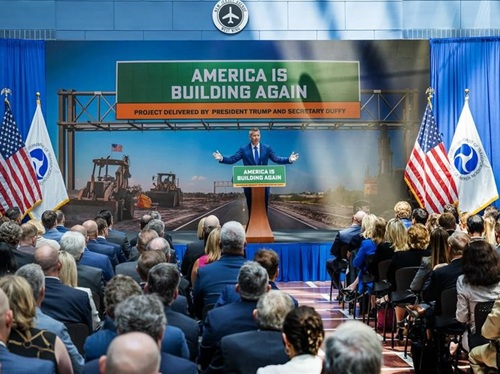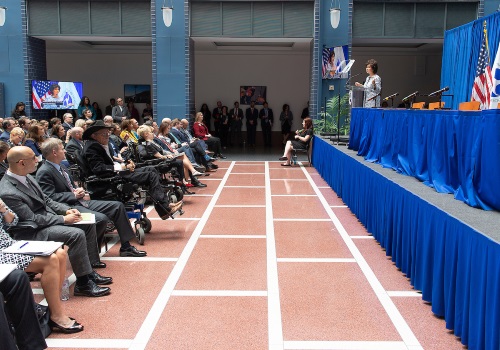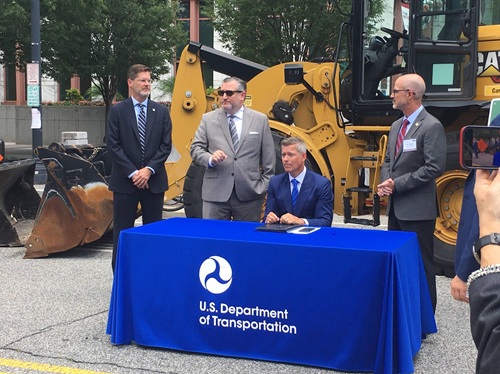A four-year, $40 million program to help develop more “comprehensive, seamless, and efficient transportation solutions” is but one several efforts the U.S. Department of Transportation launched on October 29 to foster “increased mobility access” for older adults, people with disabilities, and those living in “underserved communities” in rural and small urban areas.
“We’re here today to ensure that the revolutionary new technologies being developed will help create a more inclusive transportation system for everyone,” USDOT Secretary Elaine Chao said during a speech at the agency’s 2019 Access and Mobility for All Summit, held at its Washington, D.C., headquarters.
To that end, Chao said her department plans to focus on “three pillars” in its new approach to boosting mobility access and inclusion: incentivizing new vehicle technologies; increasing mobility services; and helping to make inclusive transportation options more affordable.

As a first step, she said USDOT has “jump-started” the federal government’s inter-agency access and mobility process, with the Coordinating Council on Access and Mobility putting together a new strategic plan to guide a total of 11federal agencies in developing recommendations to improve accessibility and inclusion; recommendations Chao said that are targeted to be submitted to President Trump by September 30 next year.
She added that USDOT also plans to hold workshops later this year to discuss its new four-year, $40 million Complete Trip Deployment Program, with a goal of enabling people to travel independently from one point to another, regardless of the number of connections, transfers or modes of transportation via a greater selection of more “holistic” mobility approaches.
The department is also launching a new “Inclusive Design Challenge” that will offer $5 million in prizes for developing transportation solutions that increase the availability and decrease cost of technologies that improve the accessibility of light-duty passenger vehicles.

“A special focus of this program will be attracting the best and brightest talent in academia and the private sector to work together on fully-inclusive AV [autonomous vehicle] designs that can be deployed in the marketplace at reasonable cost,” she said.
The USDOT plans to file a request for funding proposal for this challenge by the end of this year, with contest semi-finalists to be chosen in June 2020 and final award winners announced in April 2021.
Finally, the department is providing $3.5 million in funding opportunities for state transit agencies to implement the Mobility for All Pilot Program.
This Federal Transit Administration-led program will “help communities identify gaps in current transit services, and provide accessibility solutions for underserved populations, especially in rural and small urban areas,” Chao said, adding that grant applications will be evaluated by January 2020, with awardees selected by April 2020.

Following the summit, USDOT’s Chao traveled north to Cambridge, MA, to attend the official groundbreaking for a new John A. Volpe Transportation Systems Center on October 30.
The soon-to-be built Volpe Center is the result of an exchange agreement between the General Services Administration and Massachusetts Institute of Technology. The GSA will provide $750 million to design and construct a new Volpe facility on approximately four acres. In exchange, the portion of the 14-acre property where the current Volpe Center sits that will no longer needed by the federal government will be conveyed to MIT for mixed-use development.
According to USDOT, the new facility will replace the Volpe Center’s six existing buildings and surface parking lots with a single “energy efficient structure” accompanied by underground parking and approximately 100 bicycle parking spaces.
 Top Stories
Top Stories


